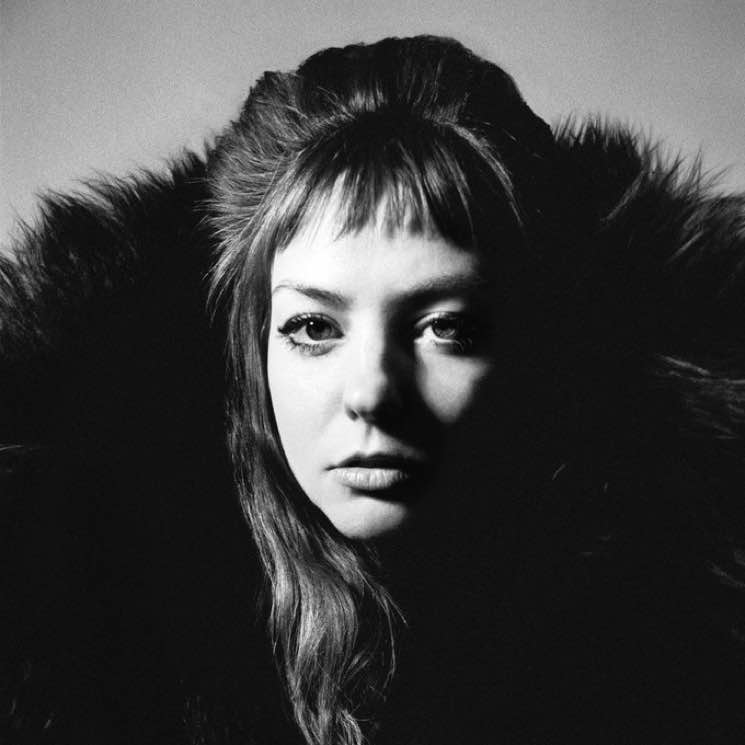To say that Angel Olsen's latest is a great leap forward is no slight on her previous work. The Asheville, NC singer-songwriter established her brand of wistful folk on 2012's Half Way Home, made a wry turn on 2014's Burn Your Fire For No Witness, and sprawled out further in both directions on 2016's My Woman. If that album's long instrumental passages and often ruminative tone suggested a new destination for Olsen, it would take her another three years to reach it.
And it was worth the wait. All Mirrors would be an achievement if it merely reconciled Olsen's exploratory tendencies with her ear for a hook. That it does so while offering the most dynamic and experimental music of her career makes it something else entirely: the point where an artist achieves mastery of her craft.
Reuniting with Burn Your Fire producer John Congleton and recruiting arrangers Jherek Bischoff and Ben Babbitt, Olsen wastes no time departing from her classicist roots. "Lark" opens the album in a fog of soft-focus strings; Olsen's guitar, once her dominant instrument, is quickly overpowered by towering drums and droning synthesizers. For more than five minutes, the track rises and falls in pop song rhythm before dive-bombing into an explosive finale.
It's the most thrilling thing Olsen has recorded, and it sets a gripping tone for the rest of the album. She's as expressive with synths, strings and piano as she is with her voice and guitar, cycling through a variety of styles and fully inhabiting each of them. On "Impasse," she channels mid-period Scott Walker, her voice full of alienated fury. One track later, she's on to a breathy ballad. By the time All Mirrors is over, Olsen has gone from synth-pop ("Too Easy," "New Love Cassette") and Carpenters-style AM gold ("Spring") to pep-in-its-step chamber pop ("What It Is") and sweeping soul ("Chance").
As disparate as these songs are, a sense of remembrance pervades each of them. Addressing an unknown subject, Olsen opens the album with a wish to "start again pretending we don't know each other." But the reflections on All Mirrors are distortive and rarely comforting. The title track finds the singer trapped in an infinitely refracting past; nostalgic bliss is undercut by the slippage of time on "Spring." Olsen concludes it all on a hopeful note, finding satisfaction in the present: "It's hard to say forever, love, forever's just so far / Why don't you say you're with me now with all your heart."
Monumental and intimate in equal measure, All Mirrors' boldness is exceeded only by its profound emotional resonance. Angel Olsen's talents were always apparent. Here, they seem limitless.
(Jagjaguwar)And it was worth the wait. All Mirrors would be an achievement if it merely reconciled Olsen's exploratory tendencies with her ear for a hook. That it does so while offering the most dynamic and experimental music of her career makes it something else entirely: the point where an artist achieves mastery of her craft.
Reuniting with Burn Your Fire producer John Congleton and recruiting arrangers Jherek Bischoff and Ben Babbitt, Olsen wastes no time departing from her classicist roots. "Lark" opens the album in a fog of soft-focus strings; Olsen's guitar, once her dominant instrument, is quickly overpowered by towering drums and droning synthesizers. For more than five minutes, the track rises and falls in pop song rhythm before dive-bombing into an explosive finale.
It's the most thrilling thing Olsen has recorded, and it sets a gripping tone for the rest of the album. She's as expressive with synths, strings and piano as she is with her voice and guitar, cycling through a variety of styles and fully inhabiting each of them. On "Impasse," she channels mid-period Scott Walker, her voice full of alienated fury. One track later, she's on to a breathy ballad. By the time All Mirrors is over, Olsen has gone from synth-pop ("Too Easy," "New Love Cassette") and Carpenters-style AM gold ("Spring") to pep-in-its-step chamber pop ("What It Is") and sweeping soul ("Chance").
As disparate as these songs are, a sense of remembrance pervades each of them. Addressing an unknown subject, Olsen opens the album with a wish to "start again pretending we don't know each other." But the reflections on All Mirrors are distortive and rarely comforting. The title track finds the singer trapped in an infinitely refracting past; nostalgic bliss is undercut by the slippage of time on "Spring." Olsen concludes it all on a hopeful note, finding satisfaction in the present: "It's hard to say forever, love, forever's just so far / Why don't you say you're with me now with all your heart."
Monumental and intimate in equal measure, All Mirrors' boldness is exceeded only by its profound emotional resonance. Angel Olsen's talents were always apparent. Here, they seem limitless.
